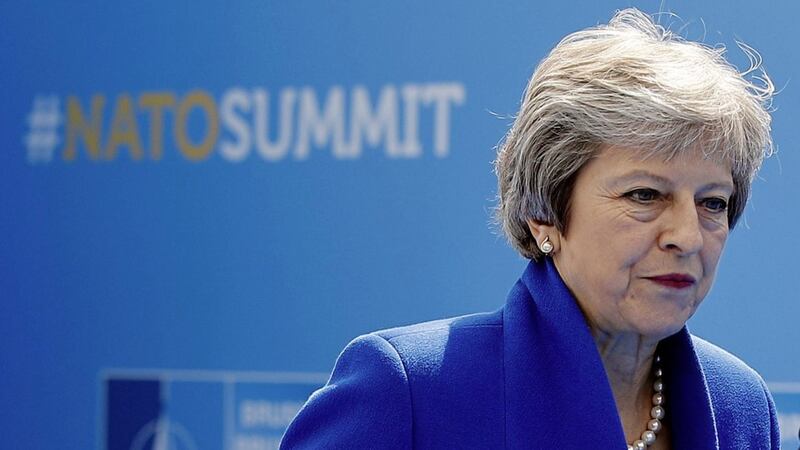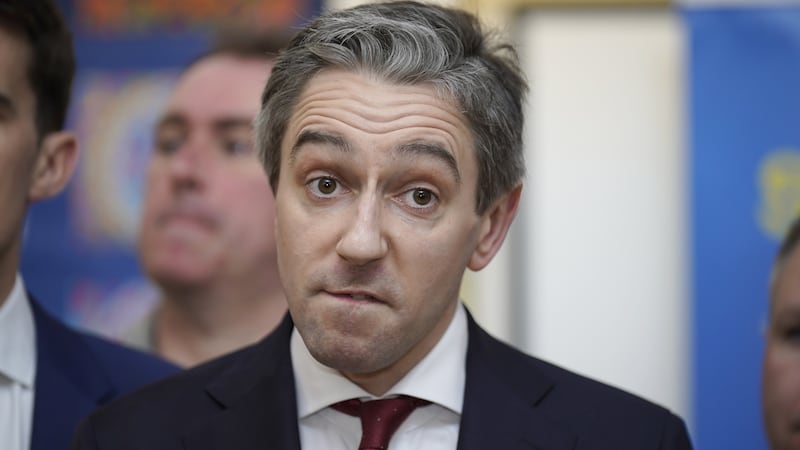WRITING in the Irish News a month ago, I noted: "So the UK is now in the worst possible position.
"A weak Prime Minister trying to sell something she doesn't want to sell; and worse, forced to endure one humiliation after another for it.
"It is crippling her. It is crippling her bargaining position. It is crippling the UK.
"Her plan seems to have been to do one thing while pretending to do another.
"Stupid plan. Stupid Prime Minister."
Well, she seems to me to be in an even weaker position right now.
What she is trying to do is sell her new deal to Remainers, Leavers, Labour, SNP, DUP, Michel Barnier, Leo Varadkar, her own grassroots and the UK electorate.
She has taken 'constructive ambiguity' to stratospheric levels; seemingly believing that it is, in fact, possible to rally people around a position that is a contradiction of their existing beliefs.
Has she heard of the Good Friday Agreement? Is she aware of the chaos that accompanies 'constructive ambiguity'?
Alice - she of Wonderland fame - may have been able to believe "as many as six impossible things before breakfast", but it isn't the sort of policy strategy I would recommend to prime ministers.
During the Good Friday Agreement I used to challenge opponents to outline a viable and available alternative to it.
I could understand why they didn't like the agreement - I had problems with it myself - but opposition had to consist of something more substantial than an emphatic 'No'.
The comedian Tommy Trinder told a story of how, on the way to a show, his car was stopped by a fallen tree.
"There was soon a queue behind me and fourth or fifth in that queue someone kept beeping their horn," he said.
"I got out, walked down to the car and tapped on the driver's window: 'I tell you what, mate - I'll sit in your car and beep the horn and you can go down there and shift the bloody big tree that's stopping all of us from moving.'
"He just wound up his window and looked the other way."
And that's what May needed to say on Monday in the House of Commons.
Jacob Rees-Mogg is brilliant when it comes to deconstructing the Prime Minister's position; yet, after two years, he hasn't put forward an alternative plan.
Nor has the European Reform Group of 60 or so Conservative MPs. Nor has Boris Johnson.
She should have challenged her opponents to tell Parliament - and everyone else, for that matter - how they planned to move the "bloody big tree".
As someone who supported Leave - and set out my reasons in a number of columns for this newspaper in the run-up to the referendum - I also stressed the importance of both sides putting forward precise and coherent arguments in favour of their positions.
Sadly, they didn't. Remain, not expecting to lose, didn't go much beyond a 'better the devil you know' pitch; while Leave, not expecting to win, opted for relentless jibber-jabber about glory days and broken shackles.
So when the result was announced we had key figures from both sides without a clue what to do. Why do you think David Cameron bolted within hours?
Anyway, back to the Good Friday Agreement and my challenge to unionist opponents.
They never produced the alternative to it, which is why it still exists and why, for 10 years, the DUP sat in government with Sinn Féin.
The DUP still pretend that their 2007 deal with Sinn Féin represented 'something different, something fairer', but it didn't amount to much more than tinkering.
They accepted the reality that they couldn't destroy the GFA or replace it, so they found a way of working within it.
Is that what Mrs May is hoping will happen? Has she calculated that her internal opponents, particularly Johnson and Rees-Mogg, don't have a viable and available alternative, even if they did manage to topple her?
Is that why she is facing them down now? At this point it looks like Liam Fox, Michael Gove and Andrea Leadsom have shifted to the authentic-mammon-is-better-than-a-bogus-god territory.
But Rees-Mogg and Johnson remain a problem. There has been much talk of betrayal on this issue.
I accept that May has to deal with the realities and practicalities of government, a divided party, unhelpful House of Commons arithmetic and negotiations with an EU which is determined to protect its own best interests.
But at no point since she became leader has she established a coherent position on Leave; and that failure has played into the hands of the EU.
But her internal Leave wing have been no better. At no point have they published a work of substance setting out how to address the problems raised by leaving the EU.
Indeed, their strategy of undermining her rather than bolstering her position with coherent answers has also played into the EU's hands.
To be brutally honest, the leaders of both sides have been as bad as each other. The last two years have shown us the worst face of politics.
It's no wonder so many people have given up on politicians and political institutions.








